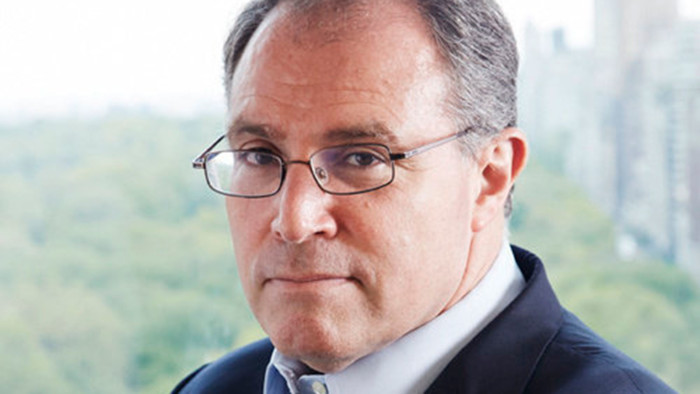The health expert happy to work with the ‘enemy’

Roula Khalaf, Editor of the FT, selects her favourite stories in this weekly newsletter.
When Derek Yach decided to leave the World Health Organization for PepsiCo in 2007, he caused a huge stir. How could one of the most-respected health academics jump ship to the “enemy” — Big Soda?
Health campaigners and scientists were often seen as the heroes researching ways to treat and contain obesity, which was reaching epidemic levels in developed countries and growing fast in emerging markets.
Meanwhile, food and beverage companies such as PepsiCo, his new employer, were cast as villains peddling the treats containing excessive levels of sugar, salt and fat that were seen as causing obesity.
But for Dr Yach, a former cabinet director at WHO, his job move was about finding common ground so that global food and drink suppliers could be part of the solution instead of a cause of the problem. “I spent many years with WHO as a powerful advocate for the role of government. I could see where the limitations were,” he says. “Law and books don’t translate into action in the streets.”
Though no longer a senior vice-president at PepsiCo, he remains committed to working out strategies to commercially align businesses with public health objectives. This ambition is central to his current position leading the Vitality Institute, a research organisation which promotes health and the prevention of non-communicable diseases such as obesity.
Costs related to treating obesity and related illnesses such as type-two diabetes and heart disease consume as much as 20 per cent of global medical spending, according to a McKinsey Global Institute report, placing an unsustainable burden on governments. More broadly, non-communicable diseases cause 16m premature deaths annually and will lead to a cumulative loss of $47tn in economic output over the next 20 years, Dr Yach estimates.
He accepts that not all welcome his argument that commercial interests can be harnessed to achieve public health objectives.
“One of the problems of encouraging public and private co-operation is the assumption that anything that helps the profitmaking entity must inherently be bad and evil,” says Dr Yach. “So there was enormous distrust on how we can work across the private-public divide, and that the solution can often be a complex combination. There’s still a hell of a long way to go.”
In some areas, consumer trends appear to be working in favour of this subtler, less attritional approach between health agencies and the corporate world. He notes many companies have reformulated products and invested in healthier options, which have become more profitable as society increasingly opts for healthy food. Such companies include PepsiCo, Coca-Cola, Mars and Nestlé.
In the US and most of Europe, it is becoming clearer that consumers are voting with their wallets, favouring small, health-oriented food and beverage manufacturers — such as Chobani yoghurt in the US, or Graze snacks in the UK — while Big Food has been on the defensive.
Dr Yach’s arguments in favour of corporate collaboration and engagement mesh with an optimism that “nudge theory” techniques borrowed from the field of behavioural economics can also be exploited to deliver improved diets and lifestyles.
Not all agree with him. Prof Klim McPherson, a UK-based epidemiology expert, is among those who have noted it is not necessarily in companies’ best interests to help lead the charge on improving the health of the population when this compromises profits. He has consistently argued for a tougher policy framework on unhealthy foods to tackle a looming obesity crisis.
Dr Yach does not advocate self-regulation among food and drink producers, but argues that regulators often cannot solve problems in isolation.
He says that Mexico’s recent tax on sugary drinks may have had limited impact on their consumption. But he suggests the tax, when unsupported by broader efforts to encourage dietary improvements, risks the unintended consequence of poorer people spending more on sugary drinks, leaving them with less money for healthy items.
He is more positive about the potential that rebate schemes offering cash back on purchases of healthy foods may have in improving diet. A programme tested in his native South Africa demonstrated that when consumers were offered the incentive of a 10-25 per cent rebate on the price of healthy foods such as vegetables, they were more likely to shift to healthier options. Such schemes would require public and private sector co-operation to be adopted widely.
However they are delivered, solutions are needed urgently to tackle the global health problems that have preoccupied Dr Yach during his career with WHO and in the private sector.
Corporate engagement may not provide a complete answer, he concedes, but in the battle against obesity, it can be an important weapon in the fight to save lives.
Additional reporting by Scheherazade Daneshkhu
Comments